Filter by
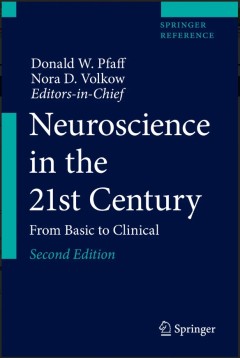
Neuroscience in the 21st Century: From Basic to Clinical
Edited and authored by a wealth of international experts in neuroscience and related disciplines, this key new resource aims to offer medical students and graduate researchers around the world a comprehensive introduction and overview of modern neuroscience. Neuroscience research is certain to prove a vital element in combating mental illness in its various incarnations, a strategic battlegr…
- Edition
- 2
- ISBN/ISSN
- -
- Collation
- LV
- Series Title
- -
- Call Number
- -
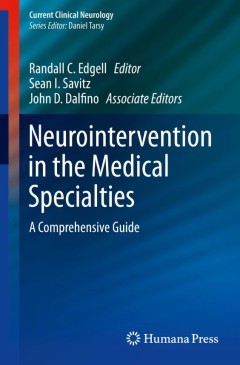
Neurointervention in the Medical Specialties:A Comprehensive Guide
- Edition
- 1
- ISBN/ISSN
- 978-1-4939-4208-4
- Collation
- XIII, 365
- Series Title
- Current Clinical Neurology
- Call Number
- -
- Edition
- 1
- ISBN/ISSN
- 978-1-4939-4208-4
- Collation
- XIII, 365
- Series Title
- Current Clinical Neurology
- Call Number
- -
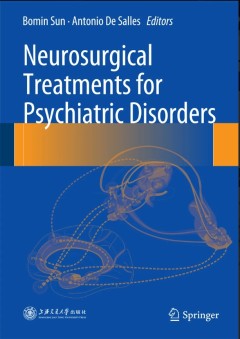
Neurosurgical Treatments for Psychiatric Disorders
This book describes contemporary clinical practice in the application of neurosurgical methods to the treatment of psychiatric disorders. It covers diverse topics such as neuroimaging, ethics and a historical review, Gamma Knife and High Frequency Ultrasound ablation, deep brain electrical stimulation and preoperative evaluation and postoperative follow-up. Its application in Obsessive Compulsi…
- Edition
- 1
- ISBN/ISSN
- 978-94-024-0045-8
- Collation
- XIV
- Series Title
- -
- Call Number
- -
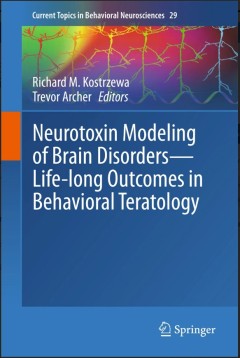
Neurotoxin Modeling of Brain Disorders — Life-long Outcomes in Behavioral T…
This book is authored by leading experts who made major discoveries in neuroteratology research focused on modeling human neural developmental disorders. Individual chapters address ADHD (attention-deficit hyperactivity disorder), Lesch-Nyhan disease, psychoses and schizophrenia, autism, and models of Parkinson’s Disease and tardive dyskinesia. The effects of perinatal stress and agonist insu…
- Edition
- 1
- ISBN/ISSN
- 978-3-319-81683-8
- Collation
- VIII
- Series Title
- Current Topics in Behavioral Neurosciences
- Call Number
- -
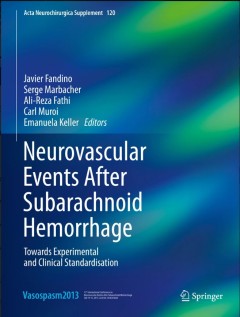
Neurovascular Events After Subarachnoid Hemorrhage: Towards Experimental and …
This book contains articles presented at the 12th International Conference on Cerebral Vasospasm, held in Lucerne, Switzerland, in July 2013. The included papers represent a balanced cross-section of the enormous progress achieved in basic and clinical research on aneurysmal subarachnoid hemorrhage and its sequelae, including early neurovascular events and delayed cerebral vasospasm. The sectio…
- Edition
- 1
- ISBN/ISSN
- 978-3-319-34806-3
- Collation
- XIV
- Series Title
- Acta Neurochirurgica Supplement
- Call Number
- -
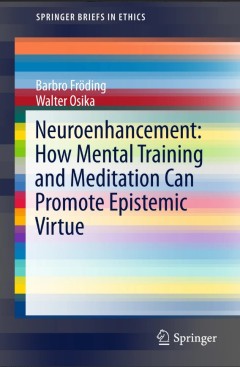
Neuroenhancement: how mental training and meditation can promote epistemic vi…
This book explores how one can bring about changes in the brain through meditation, both through attention-focus training and through compassion training. Recent findings in the natural sciences have confirmed that it is possible for humans to achieve these structural and functional changes through various life-style practices. It is argued that meditation enables us to influence some aspects o…
- Edition
- 1
- ISBN/ISSN
- 978-3-319-23516-5
- Collation
- XI, 110
- Series Title
- SpringerBriefs in Ethics
- Call Number
- -
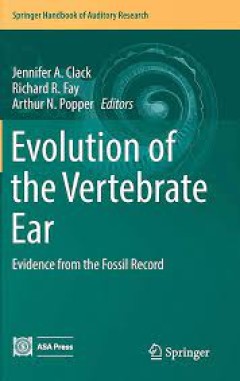
Evolution of the Vertebrate Ear Evidence from the Fossil Record
The evolution of vertebrate hearing is of considerable interest in the hearing community. However, there has never been a volume that has focused on the paleontological evidence for the evolution of hearing and the ear, especially from the perspective of some of the leading paleontologists and evolutionary biologists in the world. Thus, this volume is totally unique, and takes a perspective t…
- Edition
- -
- ISBN/ISSN
- 978-3-319-46661-3
- Collation
- 64 b/w illustrations, 52 illustrations in colour
- Series Title
- -
- Call Number
- -

Mitochondrial Mechanisms of Degeneration and Repair in Parkinson's Disease
- Edition
- 1
- ISBN/ISSN
- 978-3-319-42137-7
- Collation
- XII, 275
- Series Title
- -
- Call Number
- -
- Edition
- 1
- ISBN/ISSN
- 978-3-319-42137-7
- Collation
- XII, 275
- Series Title
- -
- Call Number
- -
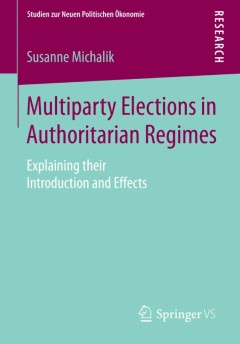
Multiparty Elections in Authoritarian Regimes
Susanne Michalik analyzes why authoritarian regimes allow for multiparty elections and how they affect political outcomes. Even though their introduction rarely leads to a change in power, such elections should not be regarded as mere window-dressing. She argues that competitive elections are installed to deal with a split among the incumbent elite and to facilitate the formation of a new rulin…
- Edition
- 1
- ISBN/ISSN
- 978-3-658-09510-9
- Collation
- XII, 148
- Series Title
- Studien zur Neuen Politischen Ökonomie
- Call Number
- -
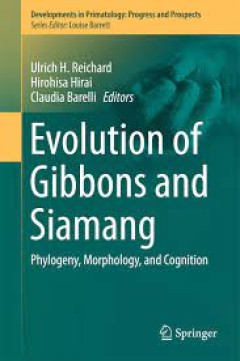
Evolution of Gibbons and Siamang Phylogeny, Morphology, and Cognition
This volume provides insight into gibbon diet and community ecology, the mating system and reproduction, and conservation biology, all topics which represent areas of substantial progress in understanding socio-ecological flexibility and conservation needs of the hylobatid family. This work analyzes hylobatid evolution by synthesizing recent and ongoing studies of molecular phylogeny, morpholog…
- Edition
- -
- ISBN/ISSN
- 978-1-4939-5614-2
- Collation
- 42 b/w illustrations, 18 illustrations in colour
- Series Title
- -
- Call Number
- -
 Computer Science, Information & General Works
Computer Science, Information & General Works  Philosophy & Psychology
Philosophy & Psychology  Religion
Religion  Social Sciences
Social Sciences  Language
Language  Pure Science
Pure Science  Applied Sciences
Applied Sciences  Art & Recreation
Art & Recreation  Literature
Literature  History & Geography
History & Geography